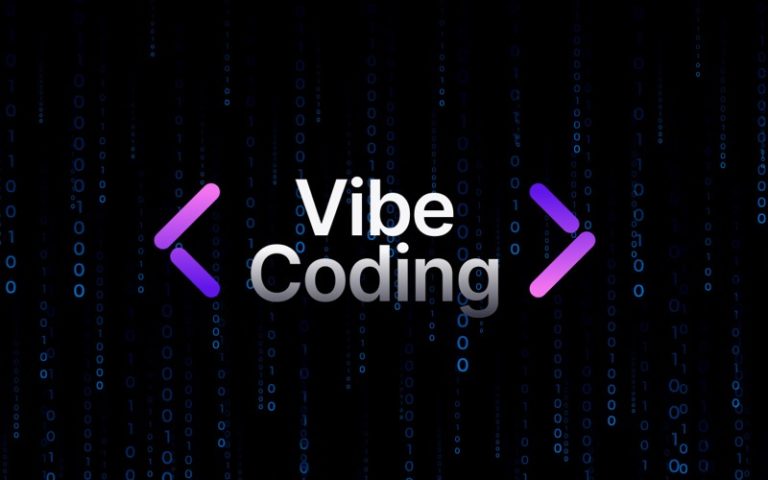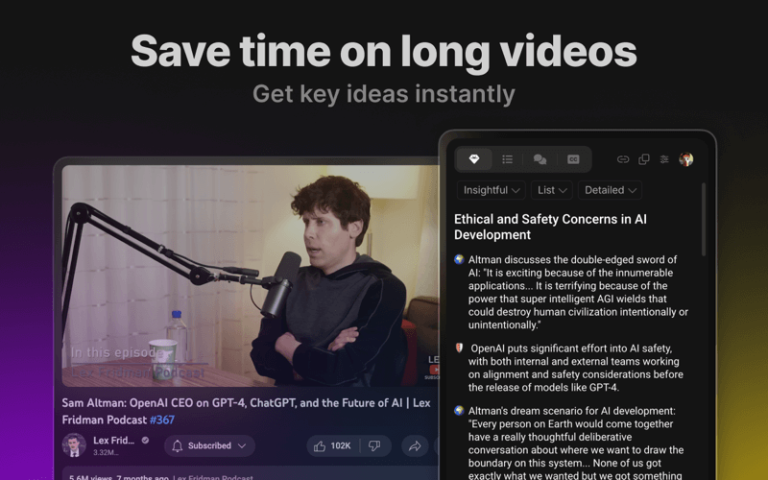Ever thought about what it would be like to clone your voice or even create a whole new one that could narrate your blog, sing “Happy Birthday,” or do a dramatic reading of your to-do list? Well, buckle up, because we’re diving into the world of AI voice models now in this article. With a handy platform like Weights.gg, you can create a voice model without being an expert in machine learning! In this guide, we’ll walk you through the basics, crack a few jokes, and get you rolling on your very own voice model journey.
Part 1: What is the RVC Model?
Now, RVC models sound like something from a sci-fi flick, right? RVC stands for Retrieval-based Voice Conversion, is an open-source AI algorithm designed for voice conversion applications that facilitate realistic transformations from one voice to another. This technology allows speech-to-speech transformations that retain the original speaker’s intonation, pitch, and unique audio characteristics, creating an authentic and natural-sounding voice replica. By leveraging advanced machine learning techniques, RVC can accurately map the nuances of a person’s voice onto a target output, making it a valuable tool in applications like voice dubbing, translation, and custom voice generation for virtual assistants and media production.
All these characters make RVC models fantastic. If you need top-notch accuracy they can be trained to sound just like the real thing, and you can use these voices for anything from podcasts to a virtual assistant that speaks just like you.
The RVC model sounds great but also a little bit complicated, right? So do we have an easier way to train a voice model for ourselves? Let’s dive into the second part now!
Part 2: How to Train a Voice Model with Weights.gg
Why Choose Weights.gg to Train a Voice Model?
To be honest, there are so many methods that we can use to train a voice model. If you are an expert in programming, you can train the voice model with code. But if you are just a normal user without any basic technology about programming like me, Weights.gg may be your best choice. This platform can help you create that voice model, with no tech wizardry required. Weights.gg makes it easy to dive in, with intuitive features and the option to create audio models (yes, even yours) for free! It’s user-friendly, which means you don’t need a computer science degree to figure it out. You just need a voice (or a voice idea) and some audio files, and you’re on your way to AI greatness.
How to Train a Voice Model with Weights.gg
Now, here’s where the magic happens, people. Let’s get your voice model rolling with some simple steps.
Step 1: Pull Up Weights.gg
Open your browser, type in Weights.gg, and hit “Enter.” If you don’t have an account, sign up—it’s free!
Step 2: “Create” Magic Time
Once you’re in, locate the “Create” button on top. Click it to head over to the “Create with AI” page. Here, you’ll get to choose what kind of model you want to create and we’re here for the voice model!)
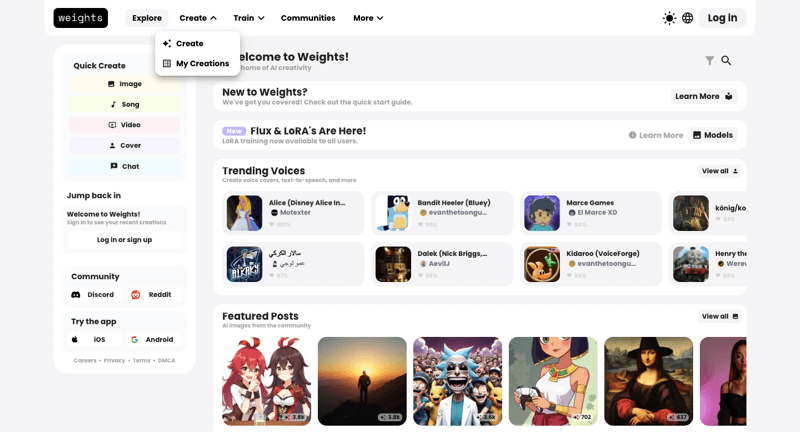
Step 3: Pick the Voice Model Creation Option
Under Audio, you’ll see “Voice Model.” Go ahead and click “Train.” Pat yourself on the back—you’re officially one step closer to cloning a voice.
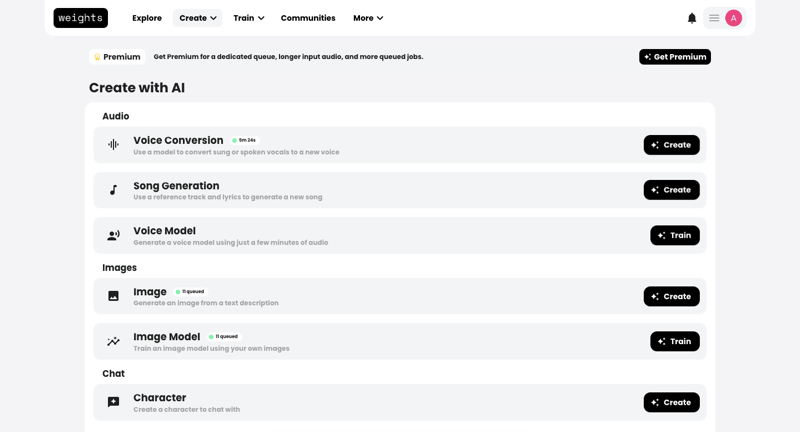
Step 4: Get Creative with Model Details
Now we’re going to personalize your voice model:
- Model Name: Give it a good name. Something punchy like “Epic Narrator” or “Captain Sarcastic.”
- Model Description: A short blurb about your model’s grand purpose in life. (No existential crisis here!)
- Private Model: Check this box if you don’t want everyone to hear what your AI voice model sounds like.
- If you’re feeling fancy, upload an image of your model to give it that “face behind the voice” vibe.
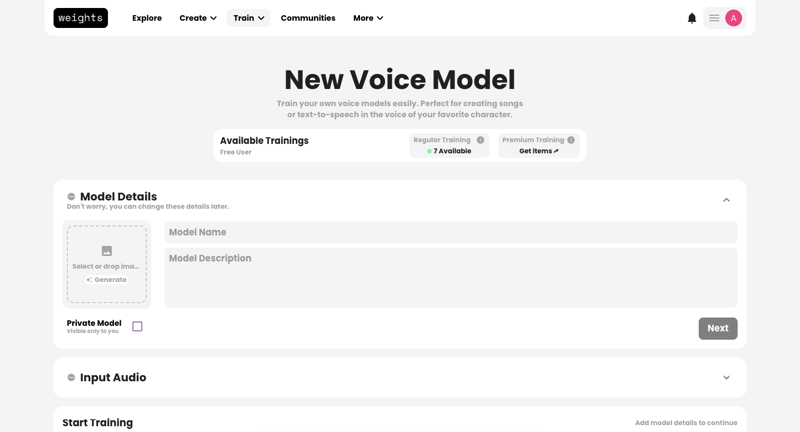
Step 5: Feed It Some Audio
Scroll down to the “Input Audio” section. Here’s where the magic sauce comes in. Upload your audio files or link to YouTube videos as training material and get some dramatic readings lying around. Throw them in. Then use the Dataset Duration slider to decide how much audio you want to use for training. Remember, more time means more accuracy.
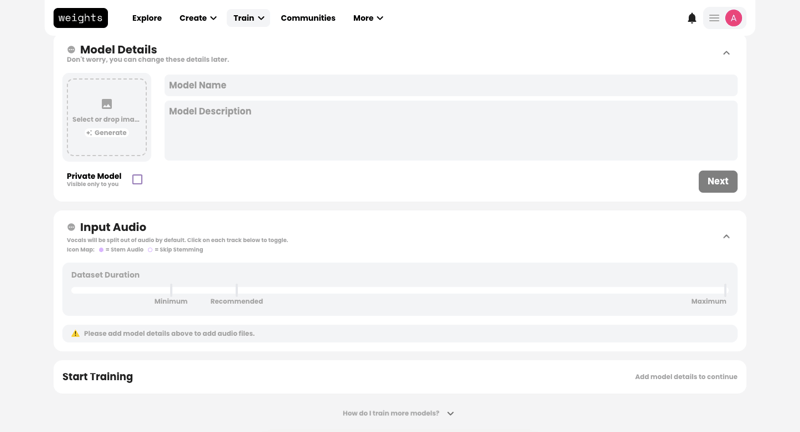
Step 6: Hit “Start Training”
Now for the fun part: scroll to the bottom and click “Start Training.” Grab a snack, check your emails, and maybe even go for a walk—it may take a bit of time depending on your audio files.
Step 7: Test and Brag
Congratulations! Once the training is done, it’s time to test out your new AI voice. Give it a command and hear it talk, sing, or read you the latest news in your very own synthetic tones. Feel free to impress your friends, scare your pets, or just enjoy the digital power trip.
Tips: Explore More Pre-trained Voice Models
If you want to explore more voice models, here are some of the best sites offering pre-trained voice models, ideal for projects where you need ready-to-use, high-quality voices without the hassle of training your own. These platforms provide a variety of voices in different languages, tones, and styles, often for tasks like voiceovers, virtual assistants, and content creation.
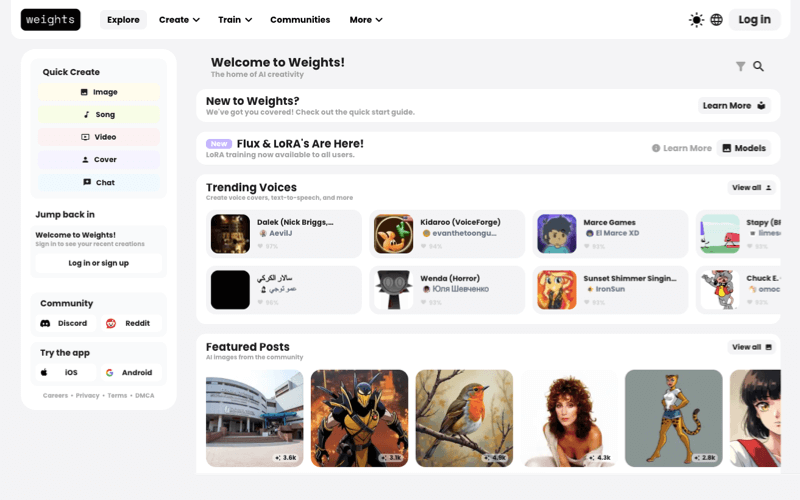
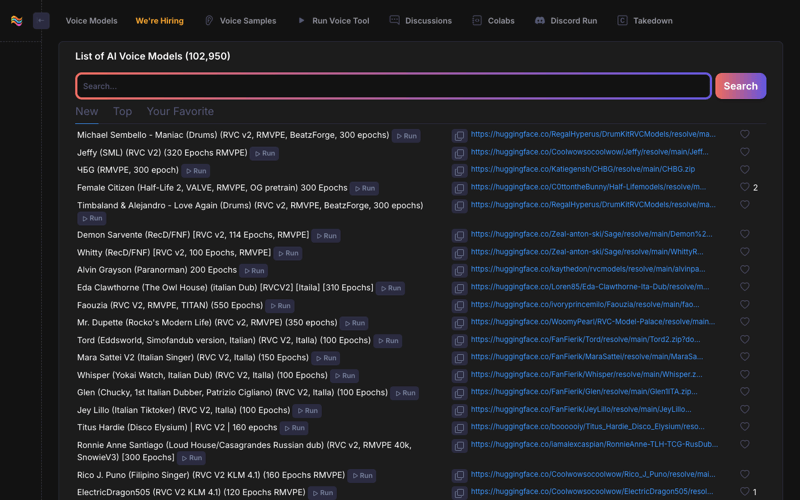

Conclusion
And there you have it—a voice model trained, customized, and ready for action. Whether you’re planning to use it for serious business or just for laughs, Weights.gg has given you the reins to create something truly unique. So, go forth and create, share, or just sit back and listen to your AI masterpiece. The possibilities are endless!




